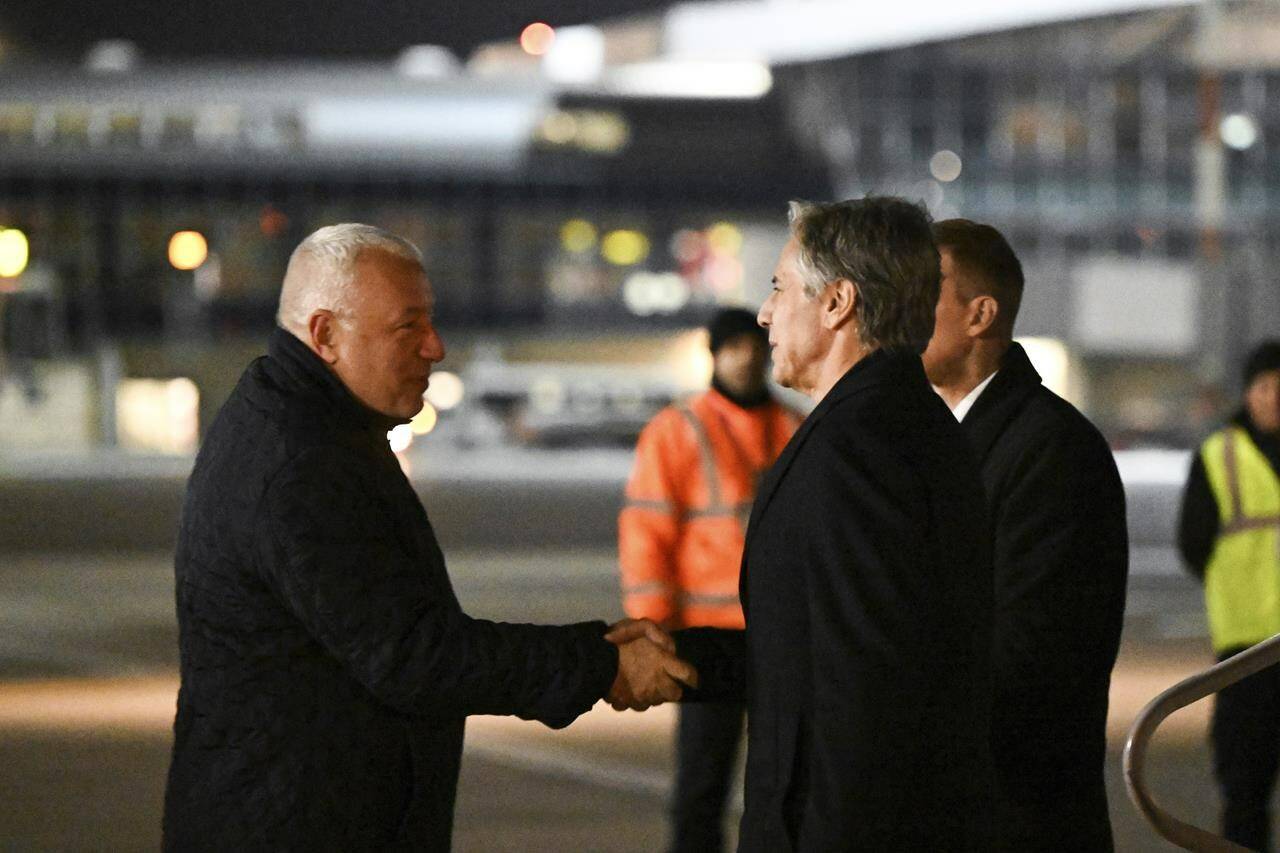NATO allies reaffirmed their commitment to Ukraine on Tuesday saying that the war-torn nation will one day become a member of the world’s largest security alliance, and promising more help — from winter aid to artillery — to help Ukraine’s beleaguered armed forces to fight off Russia.
The pledges of support in Romania’s capital, Bucharest, came as U.S. Secretary of State Antony Blinken met with NATO foreign ministers Tuesday to drum up urgently needed support aimed at ensuring that Moscow fails to defeat Ukraine as it bombards vital energy infrastructure.
“NATO’s door is open,” NATO Secretary-General Jens Stoltenberg said before chairing the meeting.
“Russia does not have a veto” on countries joining, he said in reference to the recent entry of North Macedonia and Montenegro into the security alliance. He said that Russian President Vladimir Putin “will get Finland and Sweden as NATO members” soon. The Nordic neighbors applied for membership in April, concerned that Russia might target them next.
“We stand by that, too, on membership for Ukraine,” the former Norwegian prime minister said.
In essence, Stoltenberg repeated a vow made by NATO leaders in Bucharest in 2008 — in the same sprawling Palace of the Parliament where the foreign ministers are meeting this week — that Ukraine, and also Georgia, would join the alliance one day.
Some officials and analysts believe this move — pressed on the NATO allies by former U.S. President George W. Bush — was partly responsible for the war that Russia launched on Ukraine in February. Stoltenberg disagreed.
“President Putin cannot deny sovereign nations to make their own sovereign decisions that are not a threat to Russia,” he said. “I think what he’s afraid of is democracy and freedom, and that’s the main challenge for him.”
Beyond Ukraine’s immediate needs, NATO wants to see how it can help the country longer-term, by upgrading its Soviet-era equipment to the alliance’s modern standards and providing more military training. This will help Ukraine to join NATO more quickly, in the years after the war has ended.
Slovak Foreign Minister Rastislav Kacer said the allies must help Ukraine so that “the transition to full membership will be very smooth and easy” once both NATO and Kyiv are ready for accession talks.
Even so, Ukraine will not join NATO anytime soon. With the Crimean Peninsula annexed, and Russian troops and pro-Moscow separatists holding parts of the south and east, it’s not clear what Ukraine’s borders would even look like.
Many of NATO’s 30 allies believe the focus now must solely be on defeating Russia, and Stoltenberg stressed that any attempt to move ahead on membership could divide them.
“We are in the midst of a war and therefore we should do nothing that can undermine the unity of allies to provide military, humanitarian, financial support to Ukraine, because we must prevent President Putin from winning,” he said.
Some ministers made pledges of military support for Ukraine, others for financial and nonlethal aid.
Slovakia said that it was providing Ukraine with 30 armored personnel carriers and more artillery.
During the two-day meeting, Blinken will announce substantial U.S. aid for Ukraine’s energy grid, U.S. officials said. Ukraine’s network has been battered countrywide since early October by targeted Russian strikes, in what U.S. officials call a Russian campaign to weaponize the coming winter cold.
Estonia’s foreign minister, Urmas Reinsalu, went a step further than most, calling on his NATO partners to pledge 1% of their GDP to Ukraine in military support, saying it would make “a strategic difference.”
Most NATO allies, however, are struggling to spend 2% of GDP on their own defense budgets.
The ministers will hold a working dinner with their Ukrainian counterpart, Dmytro Kuleba, on Tuesday evening.
The foreign ministers of NATO candidates Finland and Sweden are joining the talks. NATO is eager to add the two Nordic nations to the defensive forces lined up against Russia. Turkey and Hungary are the holdouts on ratifying their applications. The 28 other member nations have already done so.
Swedish Foreign Minister Tobias Billstrom believes his country is well on track to satisfy Turkey’s demands, along with Finland, in talks on a memorandum of understanding containing conditions that Ankara wants them to fulfil.
“Everything boils down to a dialogue. We believe that we are on a steady path towards reaching all the conditions laid down in the memorandum,” he said.
—Stephen Mcgrath, Lorne Cook And Ellen Knickmeyer, The Associated Press
RELATED: NATO chief’s first visit to Canadian Arctic to focus on Russia, climate change
RELATED: Canadians believe NATO should prepare to fight Russia’s invasion of Ukraine: survey

